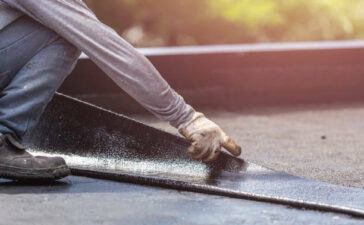When considering travertine for an outdoor space, you may be wondering if travertine tiles are interchangeable with pavers. They are not exactly the same thing, but they can both give your outdoor space a beautiful and elegant look. This blog post will cover some of the differences between travertine tiles and travertine pavers so that you can make an informed decision about which one is best for your needs!
What is the difference between travertine tiles and pavers
Travertine tiles are a type of natural stone that is cut from a slab of travertine. Pavers, on the other hand, are made from concrete or other man-made materials.
Travertine tiles can be used for both flooring and walls, while pavers are typically used for paving driveways, walkways, and patios. Travertine tiles come in a variety of colors and patterns, while pavers typically come in a uniform color.
Travertine is a type of limestone that is deposited by mineral springs. It is often used for building materials because it is strong and durable. Pavers are made from concrete or other man-made materials because they are cheaper and easier to produce.
Which one should I use for my outdoor space
Travertine tiles are a great option for outdoor spaces because they are weather-resistant and relatively easy to clean. Pavers, on the other hand, can also be used outdoors but may require more regular cleaning to keep them looking their best. They are both solid choices. Pavers are more cost-effective, while Travertine can last for much longer.
Both travertine tiles and pavers come in a variety of colors and styles, so you should be able to find something that will complement your home’s exterior design. And if you’re not sure which option is right for you, talk to a tiling or paver specialist who can help you make the right choice for your needs.
Benefits of using a travertine tile or paver for your outdoor area
The benefits of a travertine tile or paver include an esthetic appeal that compliments architectural elements and the beauty of nature, its resistance to dust and dirt from air pollution, chemical leaching from the soil, wear from traffic or foot traffic, freeze-thaw cycles in winter weather, high heat conduction rate for insulation during cold temperatures. In addition, it can help control erosion by forming a barrier against excess groundwater runoff. These natural stones can also help manage cool and moist conditions in the summer months while fighting off dryness which is especially important for areas with excessive sunlight and drought symptoms. It definitely makes it worth considering using pavers or travertine tiles outdoor for better enjoyment of time spent in your yard.
Tips to help you select the right type of stone for your needs
Travertine tile or paver are both durable and attractive, but many find the travertine tile to be more luxurious. Paver is oftentimes cheaper than travertine tile but will last longer.
Choosing between travertine tile or paver isn’t always easy because they each have their pros and cons. For example, some will say that overall paver is cheaper while others may say that it’s not as durable in the long run. So if you want a more cost-effective choice, go with pavers! The best thing to do would be to visit your local home improvement store so you can have your questions answered by someone who is a professional in the field.
The benefits of choosing a natural stone over brick, or other manmade materials
There are many benefits to choosing a natural stone over brick or other manmade materials. First and foremost, natural stones are beautiful and unique. Each one is different, with its own pattern and coloration. This makes them a natural choice for creating a one-of-a-kind look for your home or business.
In addition, natural stones are strong and durable. They stand up well to weathering and erosion and can last for centuries with proper care. Brick and other manmade materials, on the other hand, often fade or chip over time, requiring frequent repairs and replacements.







